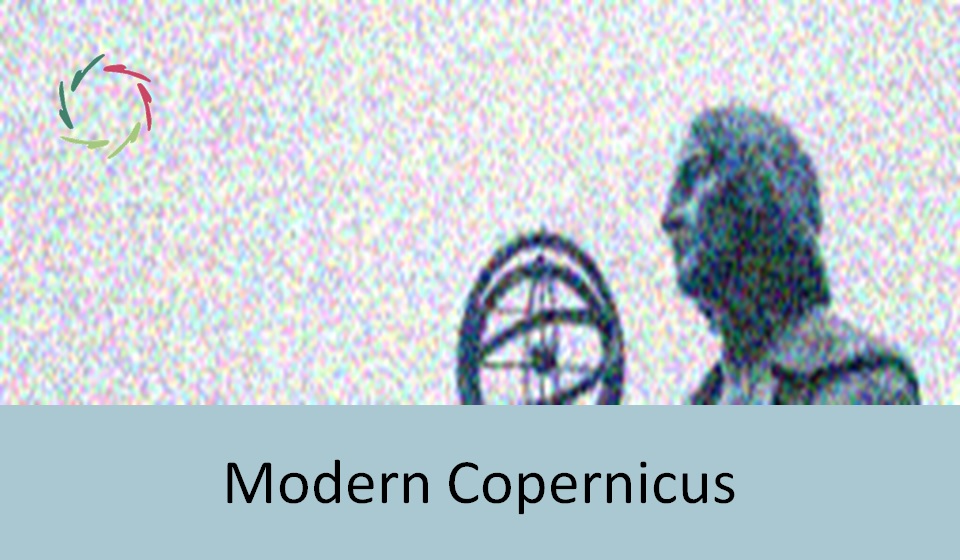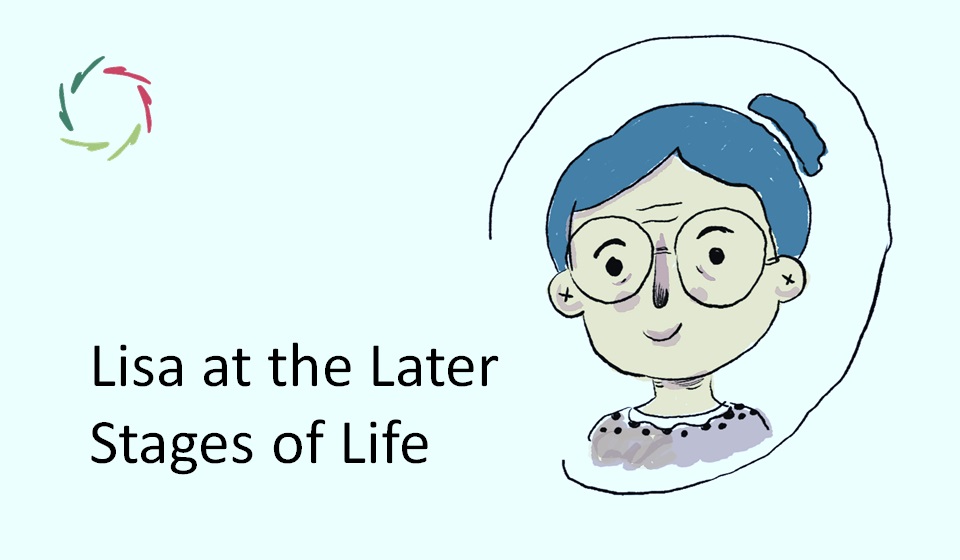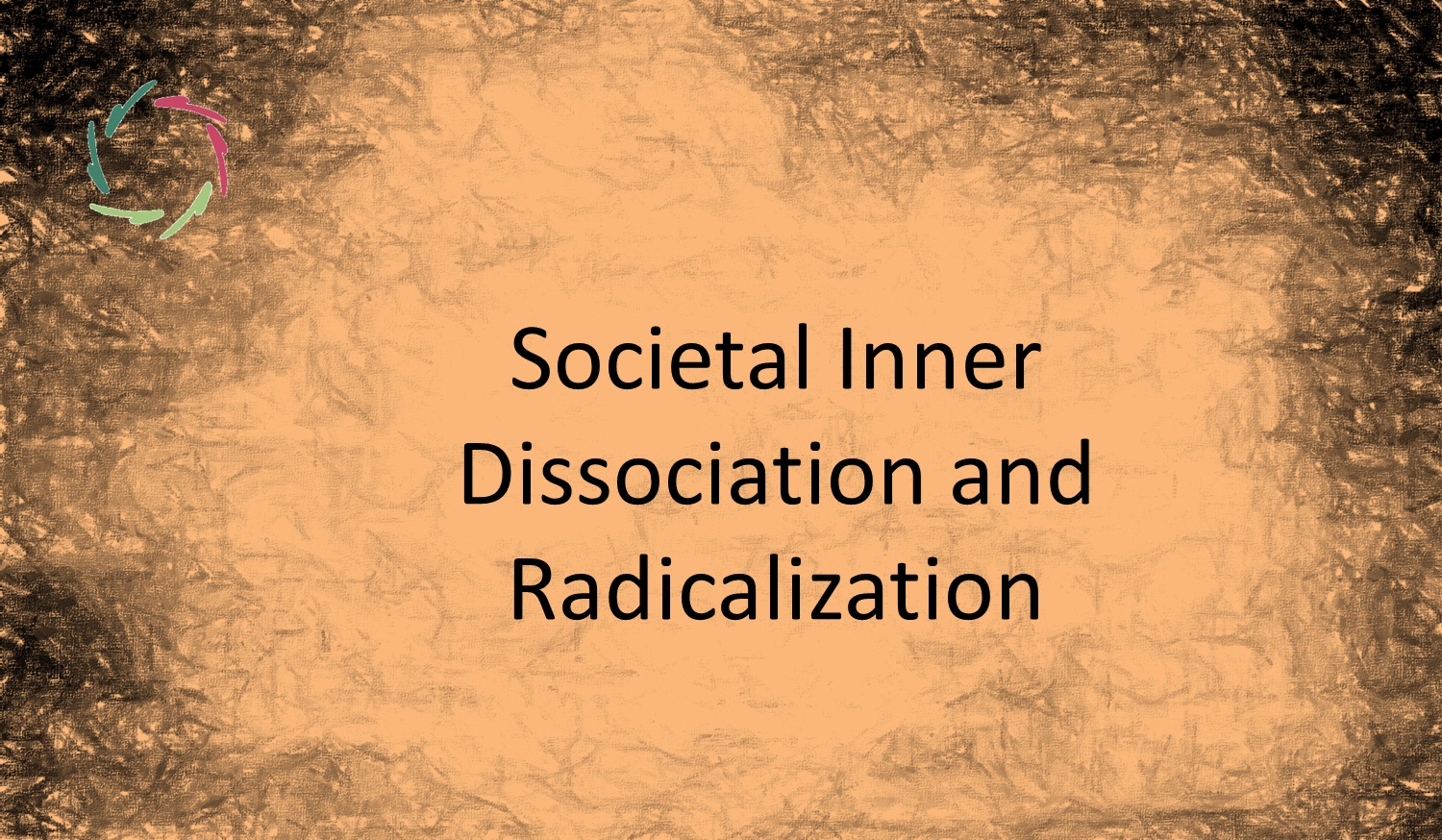How to Dis-Illusion

How can one get people out of a clear and certain state of illusion?
For instance, flat-earthers.
My earth is not flat. If yours is, then my task – including with this text – is to invite-guide-bring you toward a different opinion. How should I do that?
Not by telling you to look to the end of your street and see how downwardly curbed it is not and how cars automatically do not go quicker toward the end, to finally drop into a void before reaching the next village.
The image’s triangle
This never-ending triangle (‘Penrose triangle’ or ‘impossible tribar’) is an optical illusion. It is, of course, a two-dimensional image, but you see a three-dimensional object that cannot exist as a solid object in reality.
At least for some time, you keep seeing the impossible. The most intriguing part of this is the persistence of your mind/brain. You cannot easily make yourself see this image as not applicable to the impossible situation that you automatically project. What you can do is overwhelm yourself with rationality that clearly shows the dead end. This way, you can try to open yourself – including your visual system – to stop the nonsense. That might bring you closer to seeing the previously unseen, but it doesn’t do it for you.
In other words, to dis-illusion yourself in this example is challenging.
Likewise
To dis-illusion the proud possessor of a mind/brain containing impossibly triangular opinions about some clearly untrue issue is equally hard for the same reason. You cannot make someone see beyond obvious falsehoods. Also, no rationality will do this for you. If you think it will, well, that is also an illusion.
So, if I want to dis-illusion you from one or the other, I need rationality, for sure… as a first step. Metaphorically speaking, rationality can be the opening of a door and a friendly invitation to go through this door. On many occasions, this is enough to guide someone through it. However, how hard you may do your best, you cannot forcibly push someone through this door ― except, perhaps, after washing his brain, but let’s not go there.
Obviously, to the illusioned one, the illusion is reality
Likewise, not being his reality, yours seems like an illusion to the other. You both have an experience of me-right-you-wrong.
You can keep shooting at each other for a long time ― both, as just said, coming from the same experience.
That is weird.
So?
In such a case, it’s good to keep your standpoint, obviously.
At the same time – and only then – can you also take the standpoint of the other. I mean, doing your best to try to see things from the other’s perspective.
Guaranteed, you will learn from this as long as you don’t start shooting again. Some questions may even enhance your learning:
- What is the meaning of the illusion? Why may it be attractive?
- What is even more profoundly attractive in the same? Can you say something about this after answering the first question?
- Can you let yourself go from one end of the spectrum (reality) to the other (illusion) and back again?
- Can you describe each side of the conversation in straightforward wordings to the other side with only slight conceptual fuzziness?
- What can be seen as rational by both sides?
You can ask the other to do the same thing.
But even if he doesn’t, you can start at the same level now. While you keep your standpoint, you can show that you understand the other. You can show your interest, and even show that you can experience the why of the other.
Perhaps, adopting the other’s standpoint makes you feel better ― no problem, rather fascinating. It brings you closer to Compassion concerning the basic human predicament since you are feeling it firsthand: at the same time being too smart and not smart enough.
Oh yes, and the dis-illusion.
Being with the other – and at the same time with yourself – is the best you can do to bridge the illusion gap.
Meanwhile, the other may keep fighting for what he perceives to be the deeper meaning. OKAY. There should be no battle at that level, but a trying to find each other. Deeper meaning can only change from the inside out. Superficial meaning can only change if deeper meaning allows it.
Another triangle is impossible forever.
Out of the philosophical armchair
It’s just an example, but do you see the practical importance of this for what is presently happening in Ukraine?


